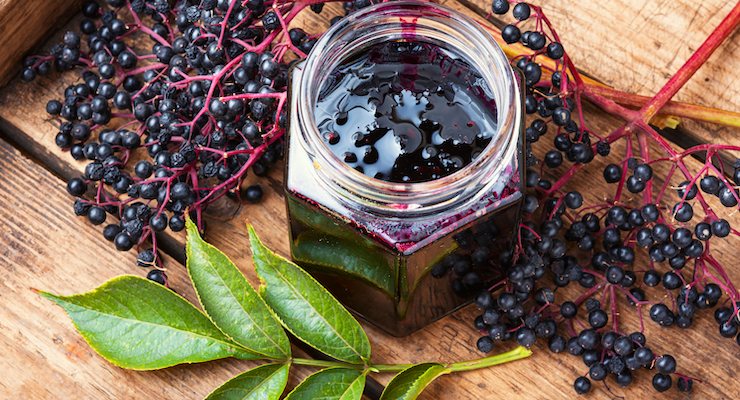Market Updates
Herbal Dietary Supplement Sales Surpass $11 Billion, Fueled by Immune Health, Stress Support & Combination Products
American Botanical Council’s 2020 Herb Market Report details pandemic-related consumer trends.

By: Mike Montemarano
Associate Editor, Nutraceuticals World

Consumers spent an estimated $11.261 billion on herbal dietary supplements in 2020, according to the American Botanical Council’s (ABC) 2020 Herb Market Report, marking the first time total annual sales surpassed $10 billion. Sales increased 17.3% from 2019, more than double the annual growth of 8.6% reported for 2019.
The second-greatest increase historically seen in herbal supplements sales, prior to 2020, was an increase of 9.4% observed in 2018.
The report, published in issue 131 of ABC’s quarterly, peer-reviewed journal, was based on U.S. retail sales data provided by SPINS, a data technology company, and Nutrition Business Journal, a publication of Informa/New Hope. The sales for individual herbs and botanicals are based on the sales of dietary supplements in which each respective plant or fungi is the primary ingredient, while excluding the sales of most herbal teas, botanical cosmetic ingredients, or government-approved herbal drugs in over-the-counter medicines.
The report was written by Tyler Smith, managing editor of HerbalGram; Farhana Majid, marketing operations associate, and Veronica Eckl, associate data manager, both at SPINS; and Claire Morton Reynolds, senior industry analyst at NBJ.
Altogether, the companies involved in the report gathered data from market research firms, company surveys, interviews with major retailers and industry experts, direct data from mainstream and natural channels, and several other mass merchandisers, independent retailers, and large regional chains in the natural channel.
The report includes six tables and one chart, including tables of total U.S. herbal supplement sales from 2000-2020 and the 40 top-selling herbs in U.S. mainstream and natural retail channels, as well as detailed descriptions from SPINS and NBJ, and tables of sales broken down by product type and retail channel.
There have been a number of significant shifts in sales increases when it comes to formulations and channels. Direct-to-consumer sales, from 2017-2019, had the highest percentage of sales growth. However, in 2020, sales in the mass market channel had a higher percentage sales increase from 2019. Still, total direct sales of herbal supplements in 2020 were higher than both mass market and natural/health food/specialty channels combined.
Combination formulas also outpaced single-ingredient formulas in sales in 2020, a trend which has continued since 2011. Combination formula and single herb supplement sales grew by 24.7% and 11.5%, respectively, compared to 2019.
Tracking the Charts
Among key findings in the report, HerbalGram noted that consumers in U.S. retail outlets gravitated toward products marketed for immune health and stress support.
Elder berry was the top-selling herbal supplement ingredient in this retail channel in 2020, with sales totaling more than $275 million. Since 2018, annual sales of elder berry supplements in mainstream retail outlets have more than doubled each year, and, in March 2020, Google searches for “elderberry” peaked, with “elderberry coronavirus” being the fifth most common search containing the term, despite no human clinical studies on elderberry and COVID-19 having been published at the time.
The top ten ingredients, measured by dollar sales, differed significantly across mainstream multi-outlet channels and natural channels. In mainstream channels, the top ten ingredients were elder berry, horehound, cranberry, turmeric, apple cider vinegar, ginger, echinacea, garlic, fenugreek, and wheatgrass/barleygrass.
In the natural channels tracked, the top-selling herbal supplements were CBD, elder berry, turmeric, wheatgrass/barleygrass, mushrooms, aloe, ashwagandha, oregano, echinacea, and flax seed/oil.
Ashwagandha root, an Ayurvedic adaptogen used widely for stress support, had the largest percentage sales growth of 185.2% in the mainstream channel in 2020.
Apple cider vinegar supplements saw strong sales growth in both mainstream and natural channels, and the top focus in marketing claims for these supplements in 2020 were “cleanse and detox,” HerbalGram reports. There was also a priority among consumers for fungi supplements, including some such as Chaga which is marketed for immune health, despite a disparate level of human clinical research on this ingredient.
Only three herbal supplements tracked saw sales decreases of 30% or more: garcinia, ivy leaf, and CBD.
Garcinia products have had steady sales declines since 2015, the authors reported, following several legal challenges related to weight loss claims. 2020 was the first time since 2014 that ivy leaf supplement sales decreased, most likely due to the fact that they are commonly used as post-infection flu remedies by consumers, and the year saw historically low rates of flu infections in the U.S.
While CBD had the highest total sales in the natural channel, the authors of the study cited ongoing confusion about CBD’s regulatory status, and several negative media reports regarding CBD quality-control issues, may have contributed to CBD’s sales decline, especially in mainstream outlets.
“Consumer trends in herbal supplements have never been more pronounced – the pandemic’s effects on supplement purchases can be seen in almost every data point for 2020,” Smith, who has co-authored this annual report since 2014, said. “Throughout the year, consumers sought out products commonly used for immune health, stress relief, and digestive support, likely in response to pandemic-related stressors. However, sales of products for age-related concerns, such as prostate and heart health, also grew in 2020, which suggests that consumers were turning to herbal supplements for both acute and chronic conditions.”
“These sales data suggest that millions of people seem to have realized that they have something called an ‘immune system,’ and that they can enhance its function by modifying their behaviors, including, but not limited to, an improvement of their diets, and the consumption of various dietary supplements,” Mark Blumenthal, founder and executive director of ABC, said. “While there are little scientific or clinical data supporting the use of botanical dietary supplements to prevent or treat COVID-19, the fact that many consumers chose to use these products indicates a strong consumer interest in natural products as a means to improve their overall health and particularly to enhance their immune response to potential challenges.”


